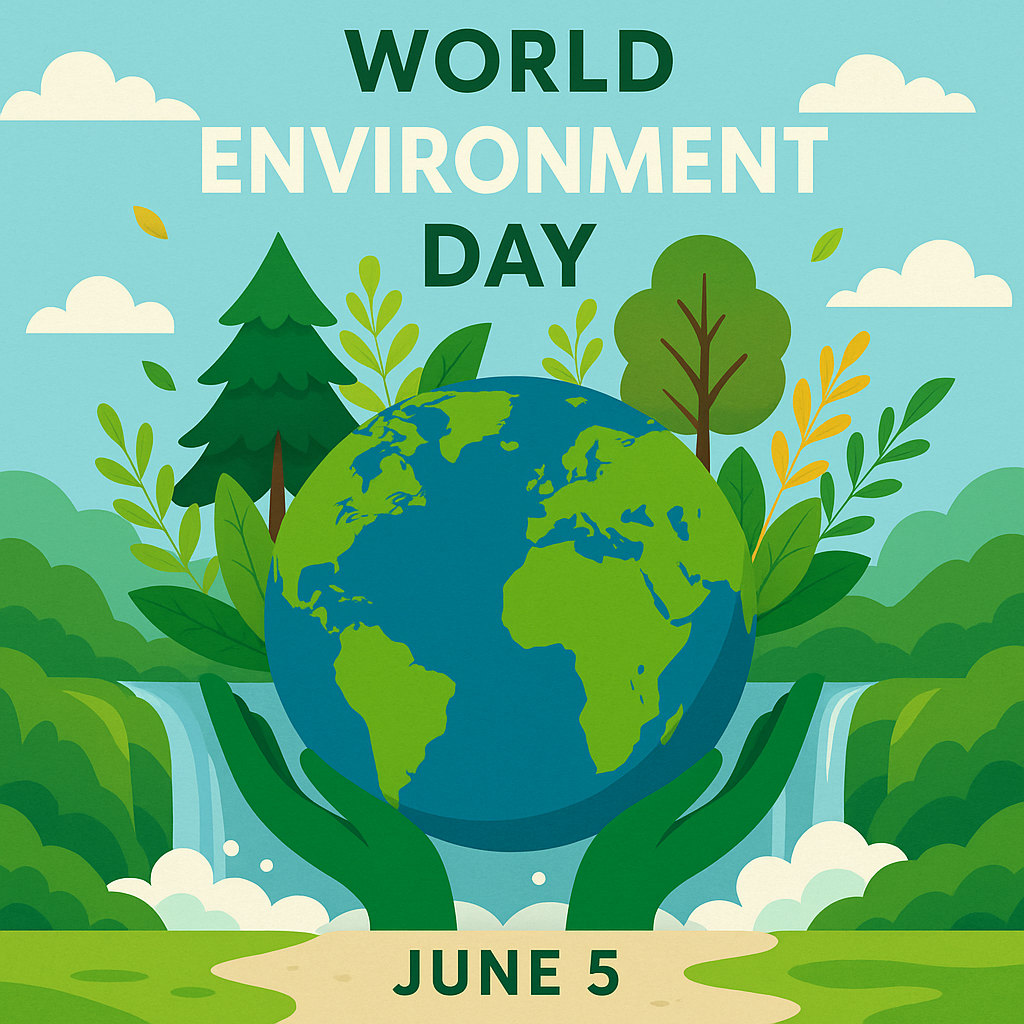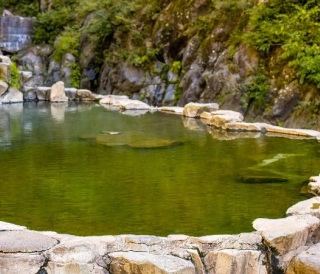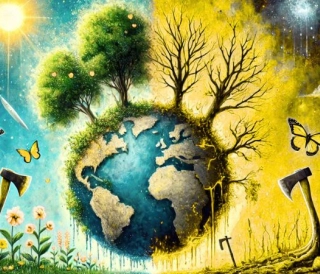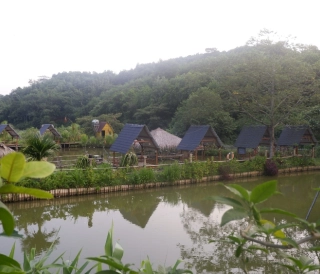Seeking Climate Justice: Acknowledging Historical Truths
04-06-2025 15:04
|
On World Environment Day, Professor Joyeeta Gupta (simulated) offers a powerful lens through which to examine the global climate crisis-one grounded in historical truths and justice.She argues that climate change is not merely a consequence of industrial development or population growth, but the product of a fundamentally unjust and unsustainable development model rooted in colonial legacies.
|
Simulated Interview with Professor Joyeeta Gupta
Distinguished Professor of Climate Justice, Sustainability and Global Constitutionalism at the University of Amsterdam; Co-Chair of the Earth Commission; Recipient of the 2023 Spinoza Prize
Interviewer: Võ Văn Trí
Interviewer:
As someone deeply concerned with environmental issues and sustainable development, I understand the importance of grounding conclusions in scientific evidence and practical research. Professor Gupta, how would you assess the current state of the global environment?
Professor Joyeeta Gupta (Simulated):
Thank you for raising such a pertinent question-one that frequently arises in global forums. Drawing upon the latest scientific assessments from the Intergovernmental Panel on Climate Change (IPCC), the Intergovernmental Science-Policy Platform on Biodiversity and Ecosystem Services (IPBES), and our own research in the Netherlands and various developing countries, the global environmental situation can be characterised by three critical dimensions:
-
Accelerated Climate Change:
Climate change is progressing more rapidly than previously anticipated. The year 2023 was recorded as the hottest in history. The IPCC's Sixth Assessment Report (AR6) confirms that without significant reductions in greenhouse gas emissions, the world is on track to exceed the 1.5°C threshold by the early 2030s—a change that would be irreversible for centuries. -
Severe Ecosystem Degradation:
We are witnessing a dramatic decline in global ecosystems. Daily, over 100 species vanish, many of which remain undocumented by science. According to the 2019 IPBES report, 75% of terrestrial ecosystems and 66% of marine environments have been significantly altered due to human activities. -
Unsustainable Consumption Patterns:
The current level of global consumption surpasses Earth's capacity to sustain it. If everyone consumed resources at the rate of developed nations, we would require more than three Earths to maintain such a lifestyle. This disparity exemplifies what I term "ecological injustice," where those who consume the least suffer the most severe consequences.
Climate change and development are no longer separate issues. In many developing nations, including Vietnam, Bangladesh, and Kenya, phenomena such as sea-level rise, saltwater intrusion, and extreme storms exacerbate poverty, food insecurity, and forced migration. Environmental considerations are now central to all development policies.
We are living not only in an era of climate change but also in a period demanding a transformation of responsibility. Without a restructuring of development models in wealthy nations and equitable access to sustainable technology and finance for developing countries, global development goals will remain elusive dreams.
Interviewer:
It's commonly believed that climate change results from human activities like population growth, industrial development, deforestation, land-use changes, urbanisation, and uncontrolled emissions. In your view, what are the most fundamental and underlying causes?
Professor Joyeeta Gupta (Simulated):
Your question delves deeply into the roots of the climate crisis, and I appreciate your effort to look beyond surface-level symptoms. Indeed, factors such as population growth, industrialisation, deforestation, urbanisation, and greenhouse gas emissions are direct causes. However, they are not the most profound ones. The core issue lies in an inequitable development model predicated on the limitless exploitation of a finite planet.
Firstly, the prevailing development mindset equates progress with GDP growth. Most countries, regardless of their development status, pursue this model, often disregarding the depletion of resources, environmental degradation, public health, and social equity. Success is measured by output and consumption rather than quality of life or ecological resilience.
Secondly, there is a stark inequality in resource access and pollution levels. The wealthiest 20% of the global population are responsible for nearly 80% of emissions, while the remaining 80% contribute minimally yet bear the brunt of the consequences. This is what I refer to as "climate injustice."
Thirdly, environmental considerations have historically been excluded from development policies. Since the 20th century, urban, industrial, and agricultural planning has often neglected long-term environmental impacts—a systemic institutional failure.
Fourthly, the global economic system promotes excessive consumption. Transnational corporations, media, and global value chains foster a consumer culture that exploits resources without accounting for the repercussions.
In summary, the fundamental causes of climate change extend beyond individual or industrial actions; they stem from a development model driven by infinite growth ambitions, unsustainable economic systems, wealth disparities, and a management approach that separates humanity from nature.
As Albert Einstein aptly stated, "We cannot solve our problems with the same thinking we used when we created them." This holds true for all climate strategies.
Interviewer:
How do historical and contemporary imperialistic actions by powerful nations impact the environment and climate change?
Professor Joyeeta Gupta (Simulated):
You've touched upon a topic seldom addressed in mainstream discussions but crucial for understanding the true nature of the climate crisis-the legacy of colonialism and the ongoing global injustices embedded within development models.
Colonialism entailed large-scale and asymmetrical environmental exploitation. From the 16th to the 20th centuries, Western powers colonised and extracted resources from their colonies-ranging from forests and minerals to labour. Massive deforestation for plantations, unregulated mining, and enforced monoculture farming inflicted severe ecological damage. Meanwhile, wealth flowed back to the colonial centres. Countries like India, Indonesia, and the Congo served as resource hubs fueling the industrialisation of Britain, the Netherlands, Belgium, France, and others.
Post-independence, many former colonies remained entangled in neo-colonial development models: exporting raw materials, importing industrial products, accruing debt, and becoming technologically dependent. Notably, 80% of accumulated CO₂ emissions since the 18th century originate from industrialised Western nations, yet these countries often fall short in fulfilling their financial, technological, or ethical responsibilities.
Today's climate change is a consequence of historical environmental inequalities. Developed nations not only caused pollution but also built their prosperity on the ecological degradation of others. Now, as developing countries seek growth, they face emission constraints not of their making. This underscores our advocacy for the principle of "Common but Differentiated Responsibilities" (CBDR) in global climate negotiations.
In essence, both historical and modern forms of imperialism have led to:
1. Unsustainable exploitation and destruction of indigenous ecosystems.
2. The imposition of distorted, unsustainable development models.
3. Climate injustice through the unfair distribution of responsibilities.
"To achieve climate justice, we must first acknowledge historical truths." This ethical foundation is essential for building a sustainable future—not just for select nations, but for all humanity.
Interviewer:
What is your perspective on the assertion that developed countries, through warfare and the expansion of the defence industry, contribute significantly to environmental pollution and climate change?
Professor Joyeeta Gupta (Simulated):
Your question addresses a sensitive yet unavoidable issue: the role of warfare, military-industrial activities, and global dominance by powerful nations in environmental degradation and the acceleration of climate change.
Firstly, war is among the most destructive forces against the environment. Modern history's major conflicts, often initiated or supported by powerful nations vying for resources and influence—from the World Wars to conflicts in Vietnam, the Middle East, and Africa—have led to extensive deforestation, water pollution from munitions and toxic chemicals, massive fuel consumption generating substantial greenhouse gas emissions, and forced displacement, poverty, and food insecurity. A notable example is the use of Agent Orange in Vietnam, which decimated hundreds of thousands of hectares of forest and continues to have severe biological impacts. Similarly, during the 1991 Iraq War, the deliberate burning of oil wells in Kuwait resulted in one of the worst environmental disasters of that era.
Secondly, the military-industrial complex represents a "grey area" often excluded from climate agreements. Most developed nations do not account for military emissions in their reduction commitments (e.g., under the Paris Agreement). Organisations like NATO rank among the world's largest emitters, yet they are not obligated to fully disclose their data. The defence industry remains one of the least transparent sectors, despite its enormous energy consumption and use of highly polluting technologies.This represents a significant ethical and institutional gap in global efforts to combat climate change.
Thirdly, the current unsustainable global order perpetuates environmental injustice. While developing countries must meticulously account for every tonne of CO₂ to secure financial support, superpowers continue to prioritise defence spending, arms production, and resource extraction abroad-without facing binding accountability mechanisms. Supply chains for weapons and heavy industries serving national security often take precedence over environmental and climate policies.nA system that views war as a solution can never achieve climate peace. To genuinely pursue climate justice, we must undertake three specific actions:
1. Mandate the inclusion of military emissions in international commitments.
2. End the prioritisation of the defence industry over investments in sustainable livelihoods.
3. Redirect defence budgets towards energy transition, climate adaptation, and ecological reconciliation.

Interviewer:
The consumerist industrial system also originates from developed nations. Consumption drives production, and unchecked production leads to environmental consequences. What are your thoughts on this?
Professor Joyeeta Gupta (Simulated):
You've pinpointed the deepest root of today's global environmental crisis. It's not merely about waste or CO₂ emissions; it's about the consumerist industrial model propagated by developed countries and disseminated worldwide.
Post-World War II, the United States and Europe established an economic model based on two pillars: infinite growth and mass consumption. To sustain growth, production had to continually expand, necessitating increased resource extraction (forests, water, minerals), higher emissions from energy, transportation, and manufacturing, and escalating waste and pollution (plastics, heavy metals, greenhouse gases).
This model is self-perpetuating: consumption leads to production, which leads to pollution, culminating in environmental crises that directly impact humanity.
Crucially, the adverse effects of consumption are not equitably distributed. Approximately 80% of global goods production serves less than 20% of the wealthiest population. Meanwhile, developing countries—suppliers of raw materials, cheap labour, and recipients of industrial waste—bear the brunt of pollution. Affluent consumers in the Global North remain insulated from these consequences, while communities near mines, thermal power plants, or electronic waste dumps endure daily exposure to toxic environments.
We are ensnared in a cycle of consumption, production, and ecological degradation. Advertising, technology, social media, and economic policies fuel a culture of unnecessary shopping. Many products are designed for rapid obsolescence, compelling consumers to make frequent purchases. This system not only devastates the environment but also deprives people of the opportunity to live simply, safely, and in harmony with nature. Uncontrolled consumption is a moral failure masquerading as economic success.
As long as we measure development by the volume of goods sold rather than the quality of life and planetary health, we remain on a path contrary to sustainable development goals. Solutions must extend beyond individual actions
Interviewer:
It is evident that rich countries are becoming richer, while poor nations—despite their abundant resources—remain trapped in poverty. In your view, how can we achieve genuine equity?
Professor Joyeeta Gupta (Simulated):
You have articulated one of the greatest paradoxes of the modern world—a paradox that persists despite decades of globalisation and development: "The wealthy grow wealthier, while resource-rich but economically poor nations remain poor." This is no accident. It stems from a structurally and historically unjust global system in which environmental and economic justice have rarely aligned. Why don’t resources help poor countries escape poverty?
Firstly, due to the so-called "resource curse." Many countries rich in oil, forests, or minerals experience lower growth, higher conflict, and greater environmental degradation. Resources are extracted for export, with little domestic value added. Governments often rely on resource exports rather than building endogenous capacity. Political systems can be manipulated by elite groups aligned with multinational corporations.
Secondly, the global financial and trade architecture is inherently unfair. Resource prices are dictated by international markets, controlled largely by powerful conglomerates. Poor nations export raw materials and import finished goods. They sell cheap ore but buy expensive smartphones. Trade agreements often prioritise intellectual property rights for developed nations while failing to share green technologies or sustainable production infrastructure.
Thirdly, developing countries have limited voice in global governance institutions. Their influence in shaping global rules-through the WTO, IMF, World Bank, and COP processes-is minimal. Climate finance, technology transfer, and aid pledges are frequently unfulfilled or riddled with conditions. So how can we build equity? While the answers are complex, some steps are clear:
1. Acknowledge climate debt and implement global redistribution. Developed nations must repay their "climate debt" through accessible and fair financing, unconditional transfers for climate adaptation, and support for green infrastructure—without increasing debt burdens in the Global South.
2. Embed fairness into global policy frameworks. The principle of "Common but Differentiated Responsibilities" (CBDR) should apply beyond climate negotiations—into trade, finance, supply chains, and energy systems.
3. Restructure development models in resource-rich countries. Rather than exporting raw materials, these nations must invest in local value chains, enhance financial transparency, redistribute resource benefits to local communities, and build institutional capacity to regulate foreign corporations.
In short: justice does not emerge spontaneously—it must be actively shaped through structural reform. Climate justice, resource justice, and developmental equity must go hand-in-hand.
Otherwise, we risk perpetuating the same vicious cycle: “those who exploit continue to prosper—those who endure continue to suffer.”
Interviewer:
Thank you for your time and this enlightening dialogue. Before we conclude, would you kindly offer a message to the international community on the occasion of World Environment Day?
Professor Joyeeta Gupta (Simulated):
I am grateful to you for hosting such a candid, constructive, and in-depth conversation. In this time of escalating environmental crises, what we need most is not just action—but action rooted in justice, collective wisdom, and honest recognition of historical injustices.
Let me be clear: climate justice must not remain a slogan confined to summits. It must become the foundational principle of all policymaking-whether in climate, trade, finance, or education. Wealthier nations must listen more, share more, and take greater responsibility. Developing countries must be trusted, empowered, and given the opportunity to design their own futures.
We are standing at a historic crossroads. If we persist on the current path—one built on infinite growth, overconsumption, and global inequality—we will repeat the tragedies of the past. But if we choose a path of wisdom, courage, and equitable cooperation, we can transform today’s crisis into a more sustainable, just, and humane future.
I believe in that possibility. And I believe in the younger generation—not just as inheritors of this planet, but as architects of its transformation.
Balneotherapy: The Natural Art of Water Healing
Balneotherapy, the ancient art of healing through mineral-rich waters, mud, and steam, has stood the test of time—blending centuries-old traditions with modern wellness practices. From easing joint pain to refreshing the mind, it offers a natural path to health that’s both restorative and deeply rooted in nature.
The Green Planet – Plants on Earth
Earth, our "green planet," is the home where life has developed and evolved over billions of years. Within Earth's complex ecosystems, plants play a central role, not only as a source of life for countless species but also as a crucial factor in maintaining planetary balance.
Khe Sanh in March – The Hills Where Coffee Flowers and Fruit Awaken Together
Khe Sanh – Where Nature and Daily Life Flow as One
When March arrives, Khe Sanh awakens in a dazzling display of blossoms and scent.
This land, quiet and humble for most of the year, bursts into color with the pure white bloom of coffee flowers and the vibrant red ripening of jackfruit coffee berries.
It’s not just a season—it’s a living canvas where nature and people breathe in harmony, painting the hills with fragrance, light, and life.
Retreat to Nature – Where Sustainability Meets Serenity
The term “retreat” originates from English, meaning to “withdraw” or “step away”—often from the noise and pressures of modern life.






